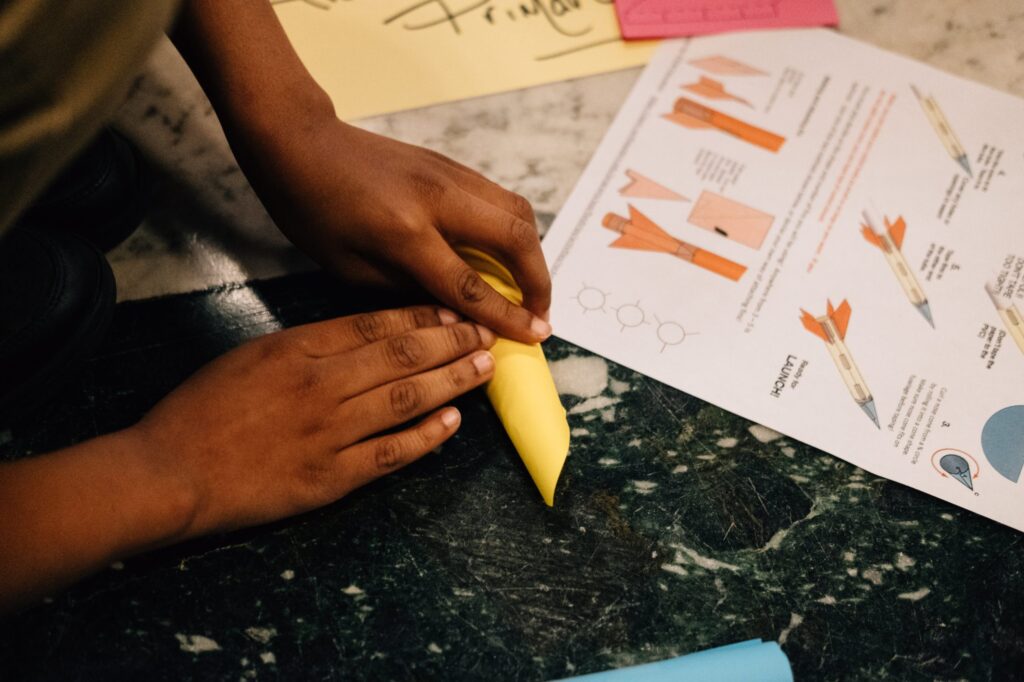By design, Moonshot projects are audacious and experimental. The grants challenge applicants to envision their preferred future of learning—what they hope learning will look like ten to twenty years in the future—and then propose a bold idea that will accelerate movement toward that future.
Over the course of their project, Moonshot project leaders test out their ideas in partnership with learners, educators, and community members. Along the way, they chart (and rechart) a course they think will guide them to the future they envision.
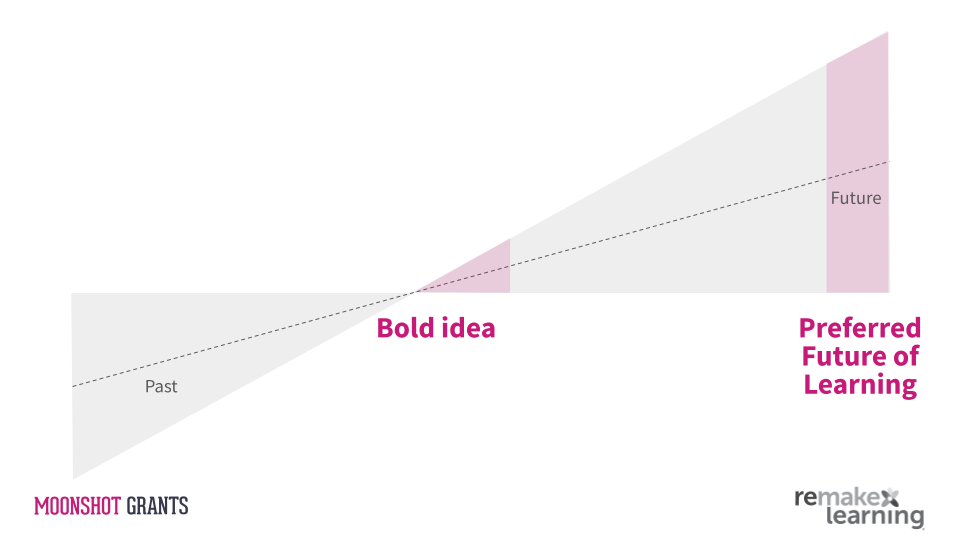
With less than two weeks remaining before the deadline for the next round of Moonshot Grants, let’s check in with mission control to see how some previous grantees are faring on their journey.
Redefining the Path, Place, and Pace for Learning
California Area School District is a small school district in Washington County, PA.
In their preferred future, youth and families have a voice in education. When in school, students have flexibility in the path, pace, and place of their learning. Likewise, schools value students’ learning differences and focus on the development of flexible, future-ready skills and dispositions.
Their bold idea to reach this future: develop an individualized educational program (IEP) for every student in their district. Typically reserved for students with exceptionalities and disabilities, IEPs are intended to engage learners in an ideal curriculum suited to their interests and needs.
Working with a pilot group of students, California Area School District started IEPs universally. The district drew on Montessori-based practices and Universal Design for Learning methods to set personalized goals for each student.
Participating students designed their own learning environment or “path” to reach their goal. Students selected experiences based on their interests and pursued a wide range of options, like beekeeping, graffiti art-making, a virtual baking program (where they bake bread to share with neighbors in need), and a rain barrel building program.
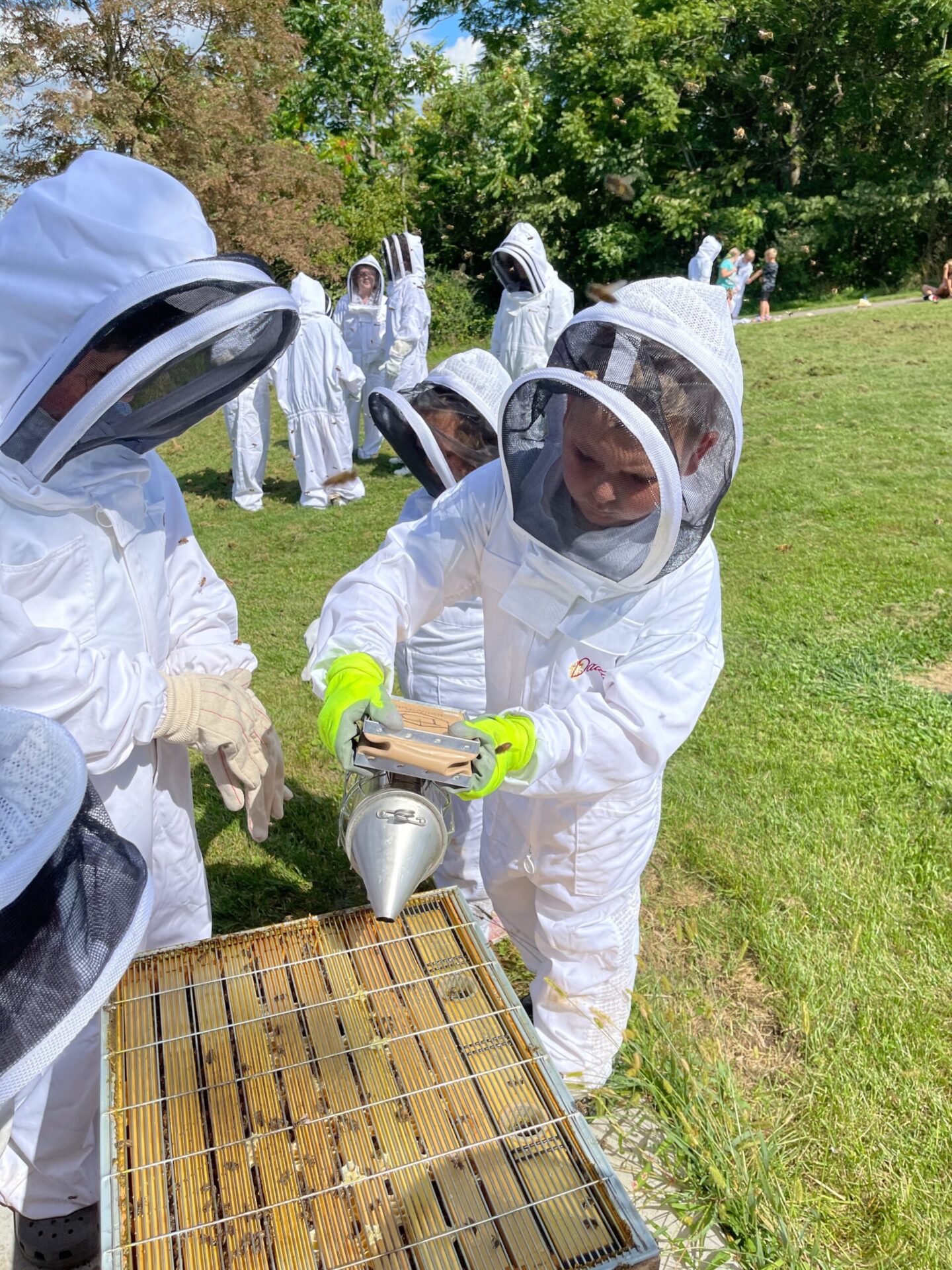
To support each student on their path, educators developed a team approach to leading instruction and documenting student engagement, progress, and success so that no aspect of their learning would slip through the cracks.
Since embarking on their journey, the district has noted shifts in learner engagement and family interest in expanding the program. At the institutional level, the district leadership approved a curriculum revision to enable broader adoption of the universal IEP approach.
Superintendent Laura Jacob shared the story of one student who had previously stayed “under the radar,” but through her engagement with the Moonshot project, discovered a new love of learning.
“She is an intelligent young girl, but she was not being pushed to her potential and the grades were not a motivator for her. Once she enrolled in Moonshot, she was able to pursue her interests…She engaged with older peers and was noticeably a different student. She started to showcase her leadership skills…She went from a student who had grades of D’s and F’s to a student that was engaged with the school, advocated for other students, and pushed herself to be better.”
Making Time and Space for Play
Hatch Partners in Play is an organization dedicated to fostering children’s creative thinking, confidence, and natural curiosity through open-ended play.
In their preferred future, learning is community-based and joyful. It celebrates the humanity, individuality, and creativity of every child. Students and educators have abundant freedom and flexibility in learning content, spaces, and time.
Their Moonshot idea was to develop play pedagogy that centers the joy of learners and educators and is based in a replicable, play-based curriculum for kindergarten and first grade classrooms.
With the support of a Moonshot grant, Hatch developed and implemented a play-based curriculum in three kindergarten and first grade classrooms in Pittsburgh’s Faison Elementary School. The curriculum is built around Playlabs, intentional, extended periods of child-led free play (outside of recess, specials, or academic blocks), which focus on materials exploration, collaboration, social-emotional learning, storytelling, and problem-solving.
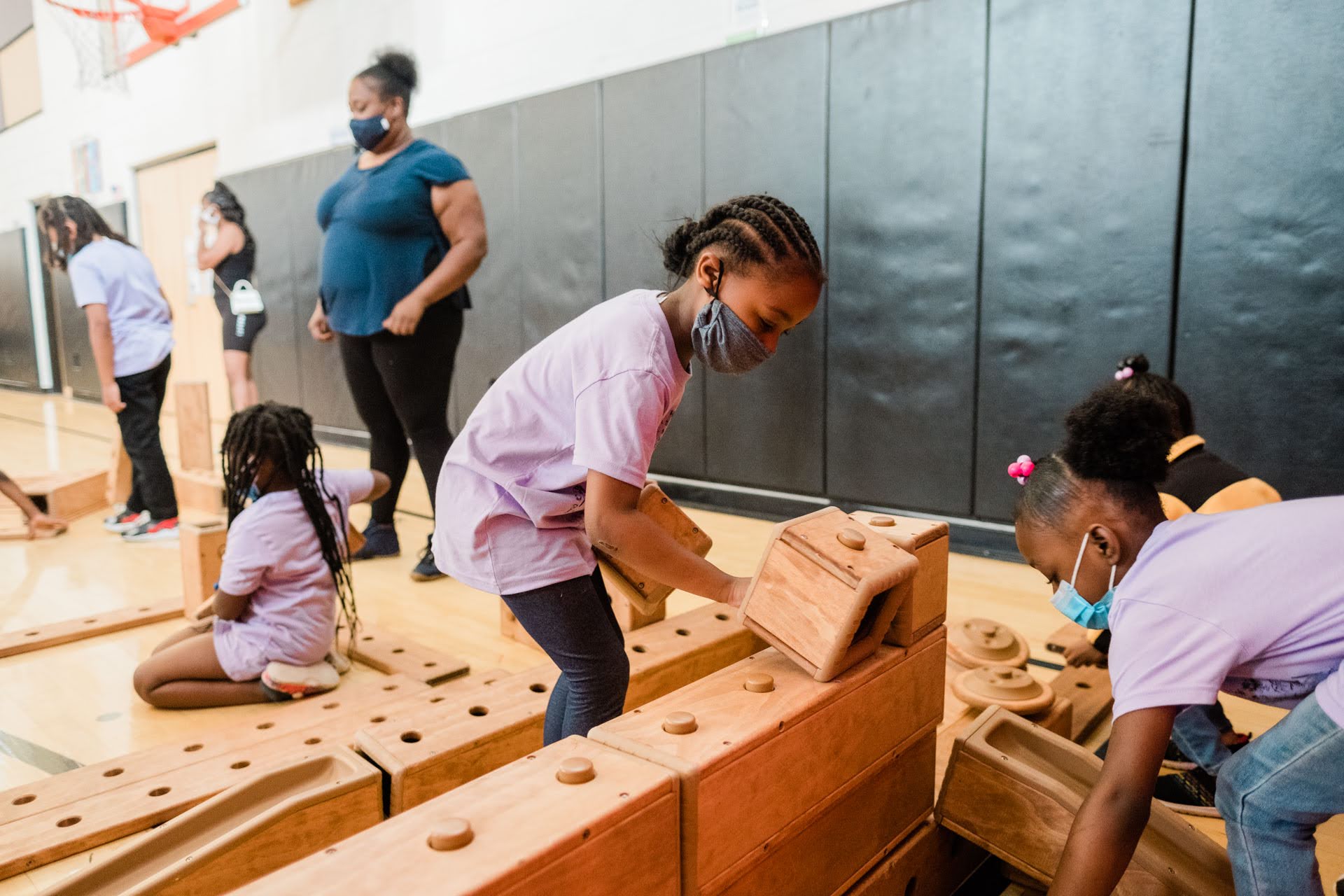
To ensure the program reflected the culture and experience of the participants, Hatch co-designed the program with educators and learners at Faison. The project team provided participating classrooms with materials, support, and options for creating their own Playlab routines. Along the way, the project team documented every Playlab with photos, videos, and summary stories to facilitate reflection with educators after each session.
The project has led to shifts in how educators and learners interact, and in how the physical environment of the school is used. Educators are recognizing strengths in learners they may have otherwise missed in a traditional setting—like social interactions and higher order thinking skills. Material resources have changed the look, feel, and approach to classrooms and outdoor play spaces.
Educators have embraced play-based learning and make time for Playlab daily. They consider it essential to their classroom and view it as an opportunity to personalize academic content in a child-led, authentic way.
“The children have become decision makers for their own learning when they make choices of where they are going to work and how they use the materials,” said Dr. Katy Carroll, 1st grade teacher at Faison Elementary. “The confidence that comes from that has helped students well beyond their Playlab time.”
The Learning Village Model
Oasis Farm & Fishery is a black-owned and led “Bio-Market Garden” located in Pittsburgh’s Homewood neighborhood. As an educational initiative of the Bible Center Church, Oasis is deeply rooted in the community it serves.
In their preferred future of learning, Black youth are equipped with the 21st century skills needed to help push their communities forward. Young people engage in learning they can explore, innovate, and create to reach their potential. Older adults, including parents and grandparents, will engage in the learning process with youth, exchanging knowledge in meaningful ways and youth will understand how they are shaped by these experiences.
To make this future vision a reality, Oasis developed a new model for learning that challenges traditional top-down, teacher-led instruction in favor of multidirectional and multigenerational learning.
Oasis used their Moonshot grant to launch The Learning Village Model (LVM), an experiential learning initiative focused on environmental and racial justice. LVM combines in- and out-of-school time spaces to provide a project-based, green education to learners of all ages, incorporating U.N. Sustainable Development Goals, apprenticeship, mentorship, farming, Black culinary heritage, and more. LVM is preparing youth for future jobs and leadership roles while helping to make their historically Black and low-income community more just and ecologically vibrant.
To start developing the LVM, the project team hosted workshops where they learned that community members wanted a stronger give-and-take dynamic, with more time for participants to share expertise with one another. This led to the creation of a new participatory adult workshop series on food and culture.
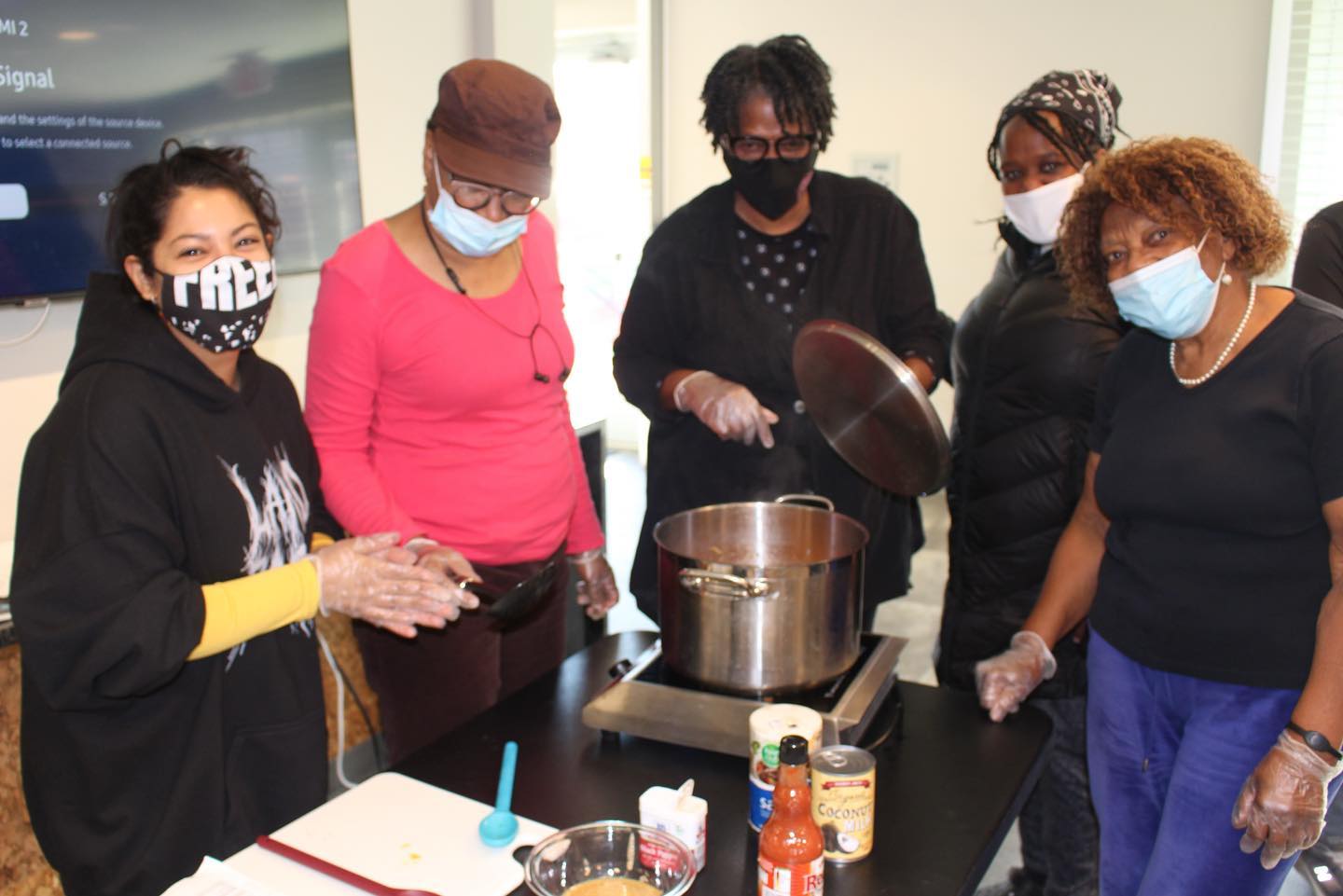
Insights from the focus groups shifted the staff’s assumptions about what it means to serve their stakeholders and design programs that are truly collaborative and empowering. To extend the impact of the workshops, the project team established “field to fork” workforce development partnerships with outside organizations.
Each of the 26 Moonshot projects Remake Learning has supported since 2021 inspire us to think bigger and act bolder. Now’s your chance to blast off with a bold idea of your own. Applications for the next round of Moonshot Grants are due November 1st. Get all the info here.
